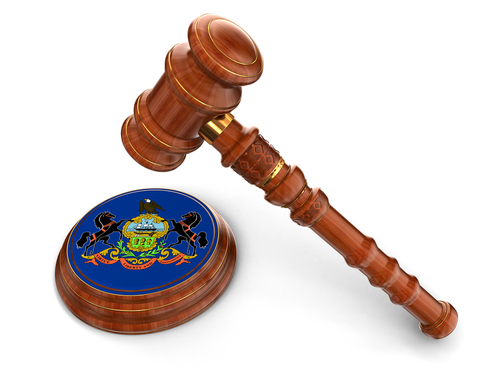Federal judge sanctions Cooley lawyer for 'hubris and disregard of procedural rules'

Image from Shutterstock.
A federal judge in Philadelphia has ordered a Cooley lawyer to pay the legal fees of his client’s opponent for filing an unsolicited 61-page “submission” with evidentiary materials after advising the court that he did not plan to present further testimony.
In an Aug. 4 order, U.S. District Judge Michael M. Baylson of the Eastern District of Pennsylvania criticized Cooley senior counsel Jon Graves for “hubris and disregard of procedural rules” and imposed sanctions.
Graves will have to personally pay reasonable expenses incurred by the opponent in connection with the submission. He will also have to take six hours of continuing legal education on federal practice and procedure.
Graves’ submission said it was filed to explain the decision not to present additional fact testimony. The legal filing included seven pages of legal argument and 10 exhibits.
Graves filed the submission in a legal dispute over patent ownership between Graves’ client, Medical Technology Associates, and the company’s former CEO, according to coverage by Law360. The defendant filed a motion to compel arbitration, and an evidentiary hearing took place on the issue. At the hearing, the defendants called two witnesses, and Graves called none.
In a May 16 phone conference, Baylson said he would allow the parties to present additional testimony, and they should advise him by May 19 whether they planned to do so. Both sides indicated that there would be no more testimony.
Graves filed the submission May 19, which included documents on possible termination of a development and license agreement that included an arbitration clause.
None of the documents in the submission was used in cross-examination of the defendants’ witnesses during the hearing, and none was introduced as evidence during the hearing.
“Graves’ strategy was to get facts stated in exhibits into the record without calling those applicable individuals as witnesses,” Baylson concluded. “Graves was attempting to place facts before the court that were clearly relevant to the arbitrability issue, without following procedure by laying a proper foundation and calling an appropriate fact witness who would be subject to cross examination.”
Graves had said he filed the submission in good faith, it responded to Baylson’s questions, and nine of its exhibits had been filed previously as attachments to motions.
Graves also sought to introduce a report by a sanctions expert who said Graves was in a difficult position because deferring a response until filing a post-hearing brief could waive his opportunity to submit additional documentary evidence. The expert cited a risk to Graves’ “duties as a zealous advocate.”
Baylson was not persuaded.
“The court is not aware of any precedent or rule that permits a party’s counsel to bypass federal procedural requirements in the name of ‘zealous advocacy,’” Baylson wrote.
“And the mere fact that some of the exhibits had been attached to prior filings, on different issues, does not allow either party or the court to then consider these … 10 exhibits as evidence regarding arbitrability” under the development and licensing agreement, the judge said.
Graves did not immediately respond to an ABA Journal email seeking comment.



